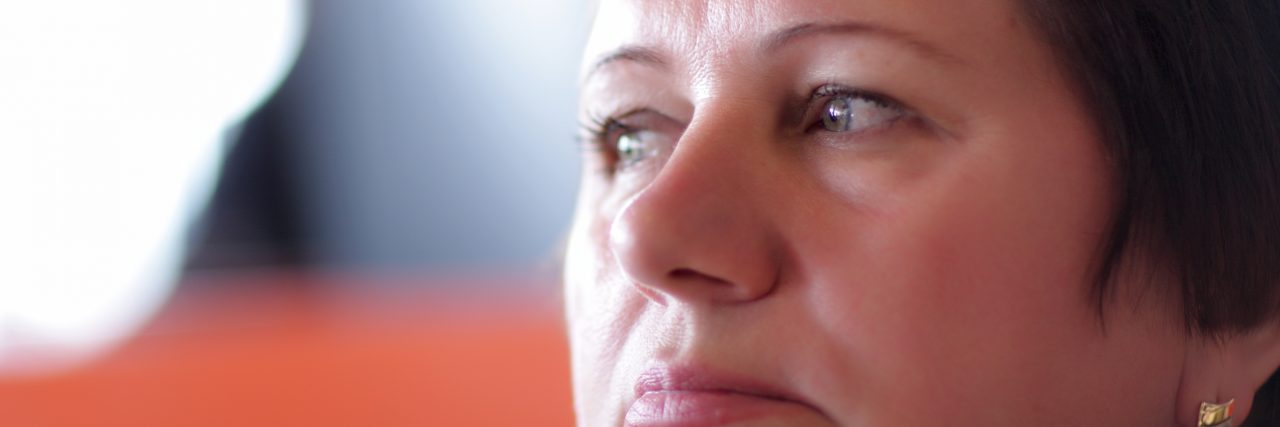Childhood loss is like living with a bully who storms in out of the blue and stays permanently. My mom died of breast cancer when I was 7 years old, but I only began grieving at 25, triggered by my friend being hit by a car as she crossed a downtown street right after I’d dropped her off. She recovered, but I was never the same as the impact jarred loose the emotional barriers I’d built. I was in free fall, a strange and alarming sensation that felt somehow familiar. Then it clicked. It was how I’d felt right after my mom’s death.
As a kid, I’d kept the bully at bay by assuming control over my life. I was responsible and conscientious and soon quite capable of making dinner for myself and my younger brother when needed. I did all my homework. I took care of my possessions. I made sure my younger brother did too, to the best of my ability. My dad eventually remarried, and then we embarked on a whole new family story, complete with a new baby the following year and new aunts, uncles and cousins who eclipsed my mom’s family. For many years I lost track of grief.
After my friend’s accident I learned that grief, like many bullies, is actually a bundle of fear and pain that yearned for acceptance. I had to give my young-girl-self the space to cry and feel and receive tender care, over and over. Her acute grief defined my late 20s and 30s as I married and had children. Over time I discovered healing through nurturing my children in ways I’d missed, and Hope Edelman’s book “Motherless Daughters” showed me I wasn’t alone. Finally, I’d dealt with grief. Wrong. Although the skills and awareness I’d gained served me well in the next stage, as my precious ones left the nest one by one, grief at their departures remained, this time as a familiar companion rather than a bully.
Now in my early 50s, my dad and stepmother have also died. Clearing out their home elicited yet another recalibration in my relationship to grief, confronting my mom’s absence through the presence of heirlooms and artifacts of her, surprising in number. In the kitchen, I excavated the soup ladle, cheese slicer and measuring cups of my early childhood, along with a blue and white Corning Ware casserole set and copper-bottomed Revere Ware pots my parents received as wedding gifts in 1955. From the dining room cupboards I liberated her fine china, crystal and silver flatware.
Although they were now mine for the taking, I struggled with resentment that these things had sat for decades seldom used. Did I really need more china? I felt angry that these long-awaited items of my mom’s did not make me feel closer to her, that they did not erase the ache or fill the void of her loss. Not claiming them felt wrong too. Finally, at the encouragement of my husband I claimed all the fine items as well as the corner cabinet where they had been stored. I could always change my mind later and move them along elsewhere.
I spent a Sunday afternoon putting it all into place, starting with the cabinet, wiping the shelves, dusting the exterior. Then one by one I unpacked the cases of plates, bowls and cups with the beautiful pink rose in the center on a cream background with a thin gold rim, arranged them in the lower compartment. Next came the crystal, delicate with an etched leaf and vine pattern. I began with the water goblets. Some were kind of sticky and all were dusty, so I took them to the kitchen to wash. Soaping the green scrubby pad and wetting it generously, I dampened the first glass and then rubbed it gently all around the inner and outer surfaces and stem, rinsed it in warm water and set it upside down on a towel I’d laid flat.
Unhurried, I handled each one carefully, mindfully. The water goblets dried quickly, so I turned them upright to let the towel absorb the moisture on the bottoms, suddenly struck by how clear and sparkly they had become. I went on to the wine glasses with burgeoning joy, actually sensing in my own body the dissolution of grime as I applied the soapy scrub pad, then rinsed. The years melted away with the dust and dirt, my spirit restored along with the too long hidden loveliness. Holding a wine glass up to the light, it became truly mine as beauty and connection joined grief.
Follow this journey on PegConway.com.
We want to hear your story. Become a Mighty contributor here.
Getty image by Radist

